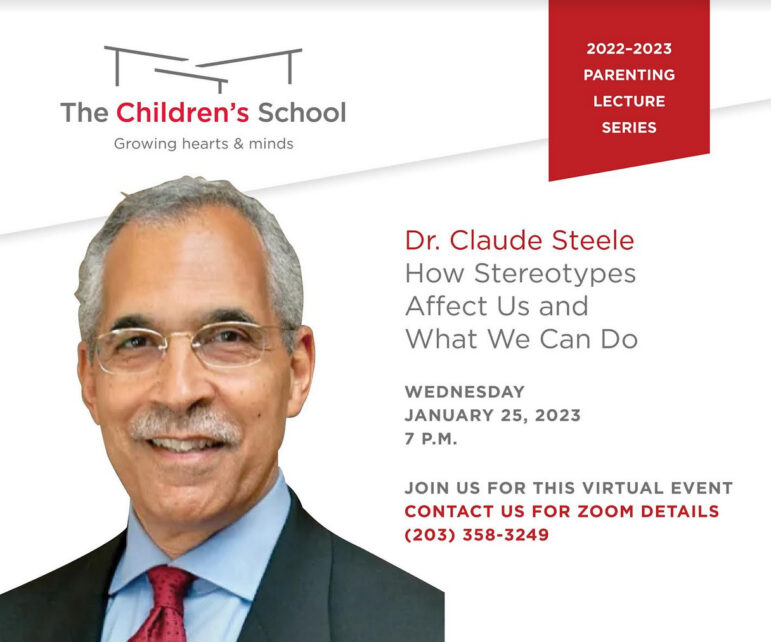The Children’s School is honored to host Dr. Claude Steele, a renowned professor of psychology at Stanford University. An expert on the psychological impact of stereotypes, Dr. Steele is among the most influential social scientists of the past three decades. In his presentation, “How Stereotypes Affect Us and What We Can Do,” he’ll explain the phenomenon of stereotype threat and the impact it has on shaping our children’s lives and educational experience.

Dr. Steele is a warm and engaging speaker, and his eye-opening research, collected in the book Whistling Vivaldi,has profound implications for the design of schools that aspire to be both diverse and empowering for all. As a social psychologist, Dr. Steele looks at the ways that children’s performance at school is shaped by external situations and pressures rather than solely by inner capabilities. As social beings, the young start to detect signals at an early age that they could be seen in a certain way, and learn to read cues about how they are seen. Some may begin to count how many others are like them and ask themselves: Am I at risk in this situation? When a circumstance sparks the fear that we will be stereotyped about one of our identities–such as race, age, gender,or health status–the mind races and siphons off vital energy that could be used more productively.
“When you’re under this stereotype threat in a classroom, you’re multitasking,” Dr. Steele explains. “You’re internally monitoring how you’re going to be seen, and that vigilance uses cognitive resources.” The extra pressure makes it more difficult for those targeted individuals or groups to succeed than it would be for a non-stereotyped person in the same situation.
Importantly, we don’t even need to experience explicit bias to feel this kind of pressure. Hidden stereotypes and beliefs still affect whether we will flourish. “Negative perceptions about our identities hover in the air around us,” Dr. Steele writes in Whistling Vivaldi. “When we are in situations to which these stereotypes are relevant, we understand that we could be judged or treated in terms of them. If we are invested in what we’re doing, we get worried; we try to disprove the stereotype or avoid confirming it. We present ourselves in counter-stereotypical ways. We avoid situations where we have to contend with this pressure. It’s not all-determining, but persistently, often beneath our awareness, the pressure organizes our actions and choices, our lives.”
Dr. Steele discovered that stereotype threat is a significant component of achievement gaps in education, whether among minority students or women in STEM fields. He also found the impact seems to be strongest on the most motivated and talented individuals—the more accomplished you are, the more the effect shows up. “It’s not an effect that’s tied to a person’s real abilities. In effect, it’s almost like an intimidation factor,” he explains. “People experiencing stereotype threat are already trying hard. They’re identified with their performance. They have motivation.
Once we recognize how the pattern of biases in our culture undermines talented individuals, we can think about remedies. The first step is simply recognizing the hidden pressures that stereotyped-targeted individuals are working under. The second is to provide the antidote: identity safety. Take away the threats to students’ identity in schools, and they’ll do fine.
The fruits of Dr. Steele’s research are a wealth of strategies to keep stereotype threat low in learning environments and to let students know they belong and are expected to succeed. In his talk, he will suggest ways to create affirming, positive environments in schools where students feel comfortable, where their identity isn’t a burden, and where they are able to take advantage of opportunities
Dr. Steele’s work carries an inspiring, powerful message for all of us, one that is worthy of careful thought. In communities and institutions where everyone feels valued and is treated equally regardless of their background, we can create the conditions for brilliance.
Says Maureen Murphy, Head of School. “We have so much to learn from Dr. Steele’s groundbreaking work, and we are looking forward to this revelatory talk.” Because of the school’s commitment to supporting every child, parent, and the community, The Children’s School invites interested members of the public to contact the school at (203) 329-8815 for a link to join the presentation, on a space-available basis.